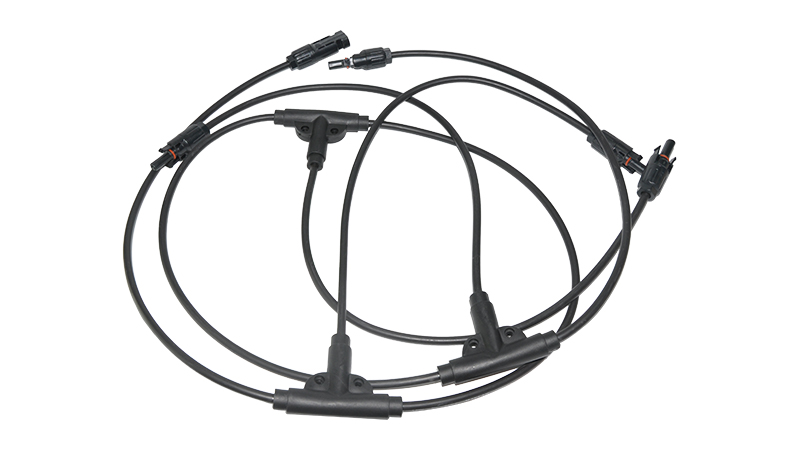Excellent electrical contact performance: The inner core of the connector adopts the stamping process to ensure good electrical contact performance and low contact resistance, thereby reducing energy loss and improving system efficiency.
Compatibility: The connector is suitable for cables of different sizes, from 2.5mm² to 6mm², increasing its compatibility and flexibility in different solar photovoltaic systems.
Simplified system design: The design of the board connector simplifies the wiring and installation of the solar system, reducing system complexity and reducing installation costs.
Long-term stability: The use of PPO material ensures the stability and durability of the connector in long-term use, reducing the need for maintenance and replacement frequency.
Environmentally friendly materials: PPO material is an environmentally friendly material, does not contain harmful substances, meets environmental standards such as RoHS, and helps to reduce the impact on the environment.
Reduced shadow effect: The design of the connector reduces the shadow area on the solar panel, minimizing the impact of shadow on the efficiency of solar power generation.
High voltage and high current transmission capability: The connector supports rated voltage up to 1000V and current up to 30A, which can effectively improve the energy transmission efficiency and system efficiency of the solar system.
Low contact resistance: contact resistance ≤0.35mΩ, ensuring the high efficiency and stability of the connection.
IP68 protection class: Fully waterproof and dust-proof, able to maintain stable and reliable performance in harsh outdoor environments, extending service life.
Materials with strong weather resistance: The use of PPO materials, with good weather resistance and electrical insulation, suitable for various environmental conditions.
Tinned copper conductor: provides excellent electrical conductivity to ensure effective transmission of current.
These advantages make the 1000V 30A IP68 Shunkonn Solar PV T-type 3T4 branch connector a key component in solar photovoltaic systems, especially in cases where high voltage and high current transmission are required.

Connecting and paralleling solar panels: T-branch connectors allow multiple solar panels to be connected in parallel, increasing the total power output of the system.
Simplified wiring and installation: By using T-branch connectors, the wiring and installation process of solar systems can be simplified, reducing the number of cables required and the installation time.
Improve system efficiency: T-type branch connectors are designed with low contact resistance, reducing energy loss during current transmission, thereby improving the overall efficiency of the system.
Water and dust resistance: T-type branch connectors usually have a high protection class, such as IP68, ensuring the water and dust resistance of the connection points in a variety of environmental conditions, thus protecting the photovoltaic system from damage.
Weather resistance: The use of weather-resistant materials, such as PPO, to ensure the stability and durability of the connector in long-term use and adapt to various climatic conditions.
Reduced shadow effect: The design of the connector reduces the shadow area on the solar panel, minimizing the impact of shadow on the efficiency of solar power generation.
Increased system flexibility and scalability: T-branch connectors allow flexible connection and expansion of solar systems, making the design and installation of solar photovoltaic systems more flexible.
Safety and reliability: T-type branch connectors are designed to ensure the safety and reliability of the system, especially in high voltage and high current application scenarios, to effectively prevent electrical failures and accidents.
In summary, Shunkonn Solar PV T-type 3T4 branch connectors play a crucial role in solar PV systems, not only simplifying the wiring and installation of the system, but also improving the efficiency and reliability of the system.
You can also contact us directly in the following ways: visit, telephone, email